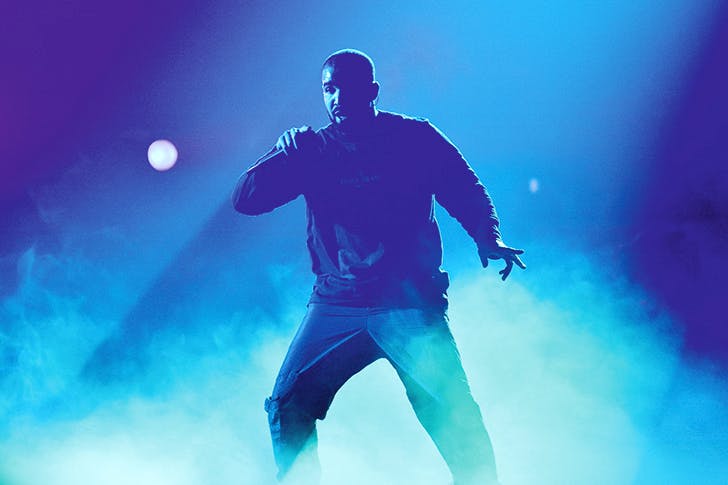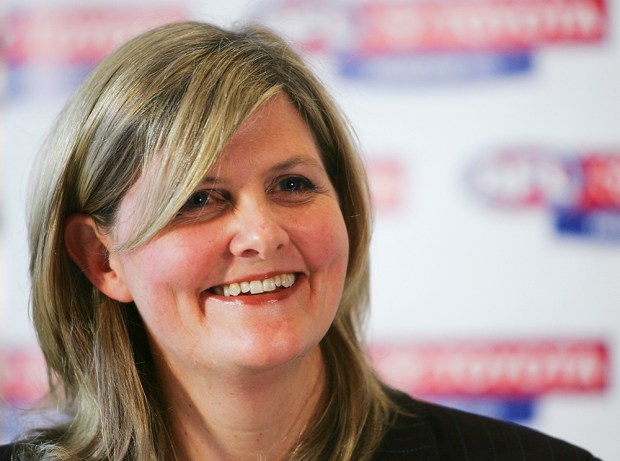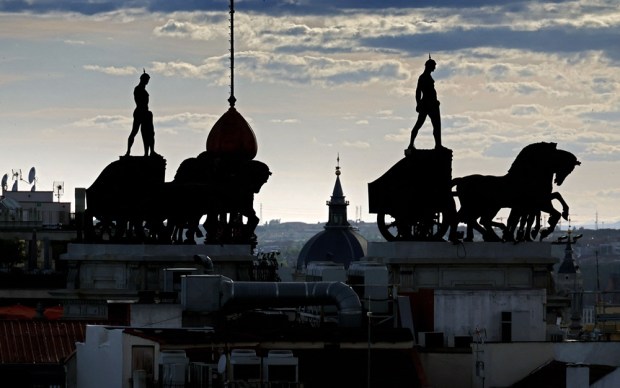Those poor Canadian rappers. Hailing from a country with a functioning benefits system, sensible firearms restrictions and relatively harmonious race relations, it must be a job convincing people of their authenticity. Aubrey Drake Graham, however, has risen above this cruel accident of birth — in Toronto, to a white Jewish mother — to become not only one of the world’s most respected rappers, but its biggest pop star too.
For a man with the world at his feet, Drake manages to find an impressive number of things to complain about in his lyrics, from fickle friends to the administrative headache of paying two mortgages. But if the approval of others is all he really needs, he certainly got it at a sold-out O2.
Drake was a magnetic stage presence from the off, running and jumping his way through openers ‘Trophies’ and ‘Started from the Bottom’. If there’s an irony in 20,000 people paying 50 to 100 quid each to hear a man boasting about how rich and successful he is, it was buried deep beneath the amped-up chutzpah.
The sparse staging bespoke a performer with complete confidence in his own ability. Pyrotechnics, hydraulic podiums and backing dancers were used sparingly, allowing hundreds of illuminated spheres, which danced above the audience in mesmerising synchrony, to provide the additional spectacle. The previous night, guest rapper Travis Scott had fallen down a big hole in the stage, emerging unharmed but damaging a giant inflatable globe that was due to appear later. There were no such glitches this time round.
A drummer and keyboardist appeared out of the dry ice, and ‘Drizzy’ changed down to R&B gear for ‘Keep the Family Close’ and ‘Feel No Ways’. Drake’s success lies in his versatility as both rapper and singer and his willingness to absorb new influences (last year’s 82-minute album Views, which he played more than half of among a string of other hits, owes a significant debt to Jamaican dancehall). So it seemed disingenuous to twice berate his keys player, however knowingly, for playing ‘too much R&B’.
When it comes to women, Drake veers from crowing about his exploits one minute (‘I got girls that I shoulda made pay for it’) to wishing they were more faithful to him the next (on ‘Hotline Bling’, he moans that a former squeeze is ‘going out more’ now that he has left the city. What does he expect?). But the (largely female) audience weren’t unduly concerned by such double standards. Spotting the ‘solid, lovely ladies’ in the house, Drake proceeded to try and charm them one by one (‘I see you in the glasses… I see you in the BBC T-shirt…’). For a moment, they felt as special as him.
Underwhelming British rappers Giggs and Section Boyz came on near the end — ostensibly Drake’s homage to the UK grime scene, but you suspected they were wheeled out to provide a foil for his own talent. As the giant globe filled up shakily behind him for the finale, it was tempting to draw a parallel with the singer’s fragile but overinflated sense of self. ‘All I know, if I die, I’m a motherfucking legend,’ Drake insisted. From a dramatic point of view at least, it would have been a good moment for him to fall down a big hole.
Got something to add? Join the discussion and comment below.
Get 10 issues for just $10
Subscribe to The Spectator Australia today for the next 10 magazine issues, plus full online access, for just $10.














Comments
Don't miss out
Join the conversation with other Spectator Australia readers. Subscribe to leave a comment.
SUBSCRIBEAlready a subscriber? Log in